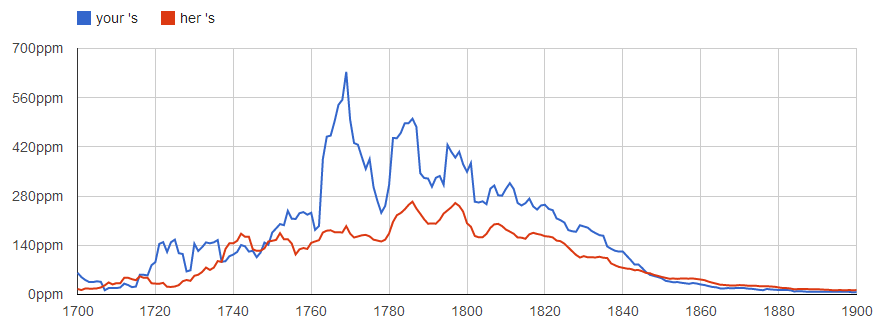Since your's and her's are virtually always incorrect in modern English, one way to answer your question is to look at the frequency of those terms in published books.
Searching Google Ngram Viewer for your's and her's shows the terms peaking in popularity around Jane Austen's lifetime and virtually extinct by 1850.
(I'd embed this image but I don't have enough rep)
